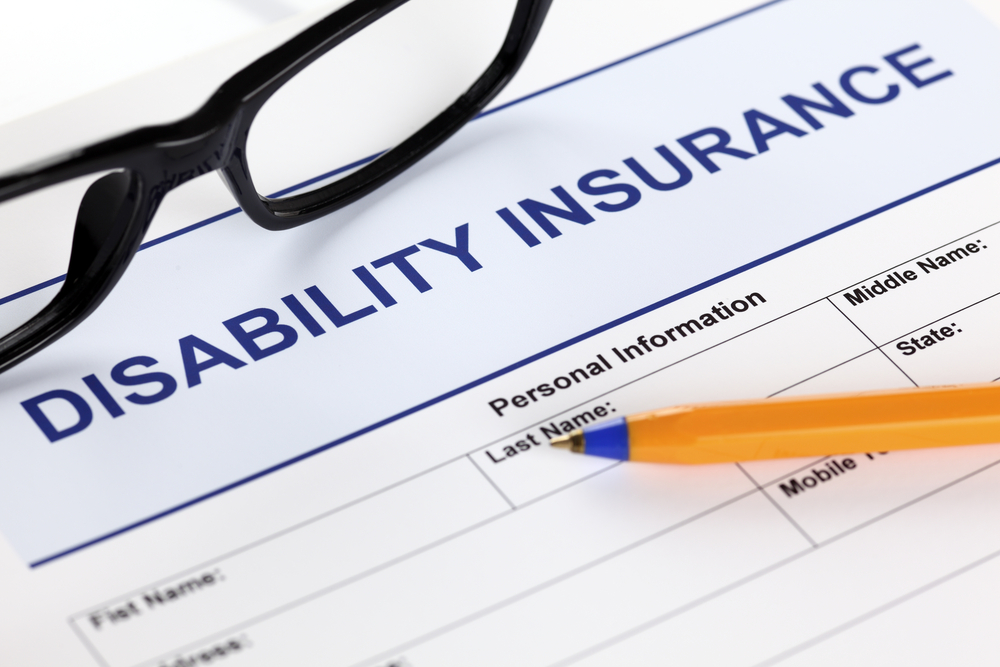If you find yourself dealing with a physical or mental health condition that leaves you unable to work, you may be facing financial stress. Thankfully, you remember that you have disability insurance coverage that allows you to receive benefits - at least, that is how things should work in practice. In reality, you are dealing with an insurance company that will make things as difficult as possible.
You should hire a Louisiana disability insurance attorney to help with the legal process because you need protection. Your policy gives you rights that insurance companies often try to ignore, and an attorney can help prepare your claim and file an appeal on your behalf if necessary. Otherwise, you may not get the benefits you deserve under your coverage.
Insurance Companies Tell You to Get Disability Insurance
Insurance companies tell you you need a disability insurance policy to give you peace of mind because there may be a time when you become ill and cannot work. Presumably, you can file a claim against your disability insurance coverage. Then, you will receive a certain percentage of the earnings you were getting before you became sick, which is usually between 40 and 70 percent, depending on the terms of your policy.
How You Obtain a Disability Insurance Policy

You can get disability insurance coverage in two ways:
- You can purchase coverage on your own directly from an insurance company.
- Your employer can provide disability insurance coverage as part of your employee benefits package.
Preferably, you should always have some coverage. More employers are providing these benefits as they seek to compete for employees in a tight labor market.
Types of Private Disability Insurance Coverage
Private disability insurance coverage comes in different forms to meet the specific needs of individuals. Here are some common types of private disability coverage you might have through your employer:
- Short-Term Disability (STD): This type of coverage provides benefits for a specified period, usually up to six months, after a disabling injury or illness. STD benefits typically replace a portion of your income during the time you are unable to work. It can provide financial support to cover your daily living expenses, medical bills, and other necessary costs while you recover.
- Long-Term Disability (LTD): LTD insurance kicks in when your short-term disability benefits expire or if your disability is expected to last for a longer period. It provides financial protection for a more extended period, typically several years or until retirement age. LTD benefits can help replace a significant portion of your income, ensuring that you can maintain your standard of living and meet your financial obligations throughout your disability.
- Own-Occupation Disability Insurance: This type of coverage is designed specifically for professionals with specialized skills or occupations. With own-occupation disability insurance, you can receive benefits if you become disabled and unable to perform the duties of your specific occupation. This coverage offers more flexibility compared to other policies that might require you to be unable to work in any occupation to qualify for benefits.
Having appropriate private disability coverage is crucial in ensuring financial security and protecting yourself and your loved ones during unexpected circumstances. However, even with proper coverage, obtaining benefits when you develop a disability can be surprisingly challenging. Many people assume that coverage provides automatic protection when they cannot work, only to realize obtaining their disability benefits is an unexpected struggle.
In this situation, consult a qualified disability attorney to assess your needs and guide you in making informed decisions about disability coverage and seeking benefits.
What Disability Insurance May Not Cover
A disability insurance policy covers a condition you developed after you purchased the policy that keeps you from working. A disability insurance policy does not cover:
- Pre-existing conditions that you had before you bought or received the policy
- Work-related illnesses or injuries that the workers' compensation system covers
- Injuries that you suffer in other types of accidents that happen outside of work, such as a slip-and-fall or car accident
- Self-inflicted injuries
Each policy will come with a list of exclusions that keep you from getting coverage. Insurance companies are careful about their wording when they draft the exclusions, and they may tighten the language for future policies if they lose a handful of court cases.
You Must Meet the Policy's Definition of Disabled
You qualify for benefits under the terms of your policy by showing that you are disabled. Each policy will have a definition of "disabled," and you must prove that you cannot work in your chosen profession due to your health condition. Although this is a lower standard than you must meet later, insurance companies are still very strict about what constitutes a disability.
Numerous things may fall under the term "disabled,” which includes any condition that keeps you from working and does not fall under an exclusion.
A long list of conditions can qualify as a disability. However, just because you have a diagnosis that says you have a condition does not mean you are automatically entitled to benefits. You still have to show that you cannot work.
Your Policy May Cover Physical Illnesses

Disability covers certain types of physical illnesses that develop after you have the policy, and one of the most common types is cancer. Depending on your condition and prognosis, you will receive benefits, either for the short-term or the long-term. Some cases of cancer are debilitating in the long term and may keep you from working for longer than the six months covered by short-term disability.
Your Policy May Cover Conditions with Debilitating Pain
You may also receive benefits for a condition that involves chronic pain. A typical example is fibromyalgia, a condition that causes you to feel constant pain that takes over your life and keeps you from working. Fibromyalgia is a musculoskeletal condition that can leave you in discomfort and sensitive to touch.
However, insurance companies are also very skeptical when it comes to a condition that involves continuous pain. They insist on seeing "objective" tests that show your symptoms in black-and-white and on paper. The problem is that pain-related conditions often rely on your subjective reporting, which is why insurance companies often deny these claims, forcing you to appeal.
Mental Health Conditions May Qualify as Disability
You may also qualify for disability when you have a mental health condition. For example, you may be suffering from:
- Depression
- Anxiety
- Post-traumatic stress disorder
- Schizophrenia
- Obsessive-compulsive disorder
- Eating disorders
- Substance abuse
Again, the insurance company is not going to take your word for anything when it comes to a mental health condition, and your claim may rely on your daily description of what you are going through. As much as society encourages people to take care of their mental health, insurance companies don't care when your issues cost them money.
Degenerative Conditions May Qualify as Disability
Degenerative conditions may also qualify for disability benefits. For example, you may suffer from multiple sclerosis or osteoarthritis that keeps you from working. These claims should be more straightforward because you have a diagnosis down on paper, and it is well-understood what these conditions may cause. However, you should never underestimate the ability of insurance companies to make things harder for you, especially when they face few repercussions for their actions.
The Definition of Disability May Change After Two Years
After two years, each insurance company will change the game's rules as to what qualifies for disability to make it harder for you to receive benefits. Now, you must show more than the fact that you cannot work in your chosen profession.
You must prove you cannot perform any work after 24 months. Insurance companies may ask you to attend an independent medical exam to understand your condition better. They are actually sending you to a doctor they are paying, who will be taking notes that they can use against you in a future lawsuit. Unfortunately, the insurance company is not asking you to go to their doctor - it is a directive you must follow to keep receiving benefits.
Insurance companies often say you can do some work because it will allow them to take you off their books. They have very self-serving and incredulous interpretations of your medical condition and your capabilities.
Many benefit recipients find out their benefits end after 24 months. This decision may shock people who thought they could continue receiving the needed payments to support themselves. You then have to fight the insurance company to continue your benefits.
You Must Make Sure to Document Your Claim Thoroughly

To know what may qualify as a disability, you must focus on how you will document your claim when presenting it to the insurance company. You will include medical and other evidence when you first file the claim. Insurance companies will review this information when deciding whether you qualify for benefits.
Your documentation should show the extent of your condition and state why you cannot work. Insurance companies may trivialize what you are going through to save themselves money, so you must clarify what you are dealing with and how it affects your daily life.
What to Include with Your Disability Benefits Claim
You may want to consider including the following with your disability insurance claim to give yourself the best possible chance of succeeding:
- The test results that show the nature and extent of your condition
- Your doctor's treatment notes that they have written over time
- A narrative statement from your doctor that details their diagnosis and the extent of your condition
- A narrative statement of your own that describes what you are feeling and dealing with as a result of your condition
- Statements from family and friends who observe you daily about what they see
- A statement from a vocational expert about whether you can perform the duties of your job (or any job at all, if the standards for receiving disability are tighter)
- Information about the rest of your medical history
Get Legal Help at the Outset of the Process
Consider hiring a lawyer to compile your initial claim. If the insurance company does not see what it wants, you may end up in the appeals process, and you can battle in court for years about whether you deserve benefits in the first place. Ultimately, a federal or state court judge may make the decision (depending on whether your policy was an employee benefit or you bought it yourself). Still, you want to avoid going through the legal process because it is stressful, and there are no guarantees of success.
Appealing a Disability Benefits Denial
If you must appeal under ERISA (for employee benefits), you will go through the insurance companies first. You will assemble an appeals file for them to review, and they will determine whether their colleagues made a mistake in denying your claim. There is a low chance that the insurance companies will ever do that, even though they may claim to give you an objective review. They are getting a free preview of your case that they need to defend at the next step.
A district court judge will review the file the insurance company examined during your appeal to determine whether the insurance company made an error in denying you benefits and not granting your appeal. You cannot add any information to the file once you have submitted it to the insurance company. This review in court is often the only way to get objectivity in the disability benefits process.
If you must appeal a denial of coverage, you will not need to pay money to a lawyer to get them to take your case. You hire a lawyer on a contingency basis, meaning they only receive payment if you settle with the insurance company or win your case in court. If you do not win your case, your lawyer will not send you a massive bill for every hour they spent on your case. Thus, you can afford an attorney.
Consult a Louisiana Disability Lawyer Today
If you are struggling to get disability benefits in Louisiana, you are not alone. There is professional assistance available from disability law firms in your area. Call today for your Free Denial Review.



